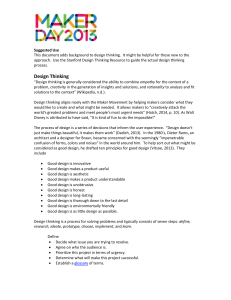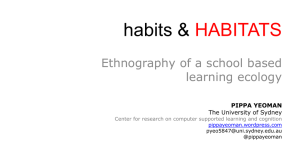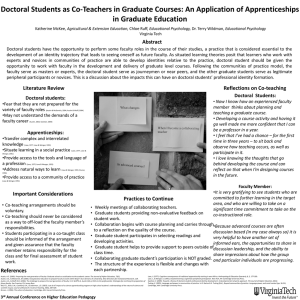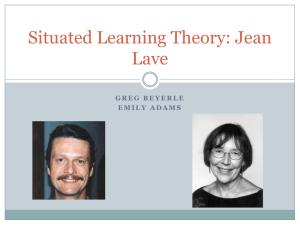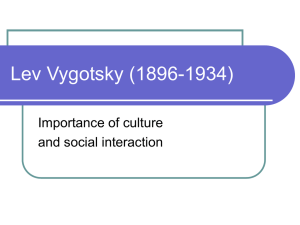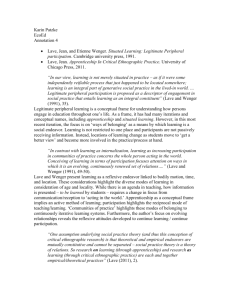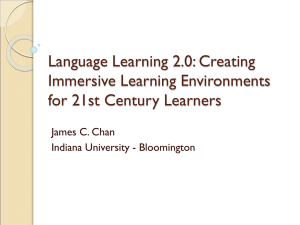Week 4
advertisement
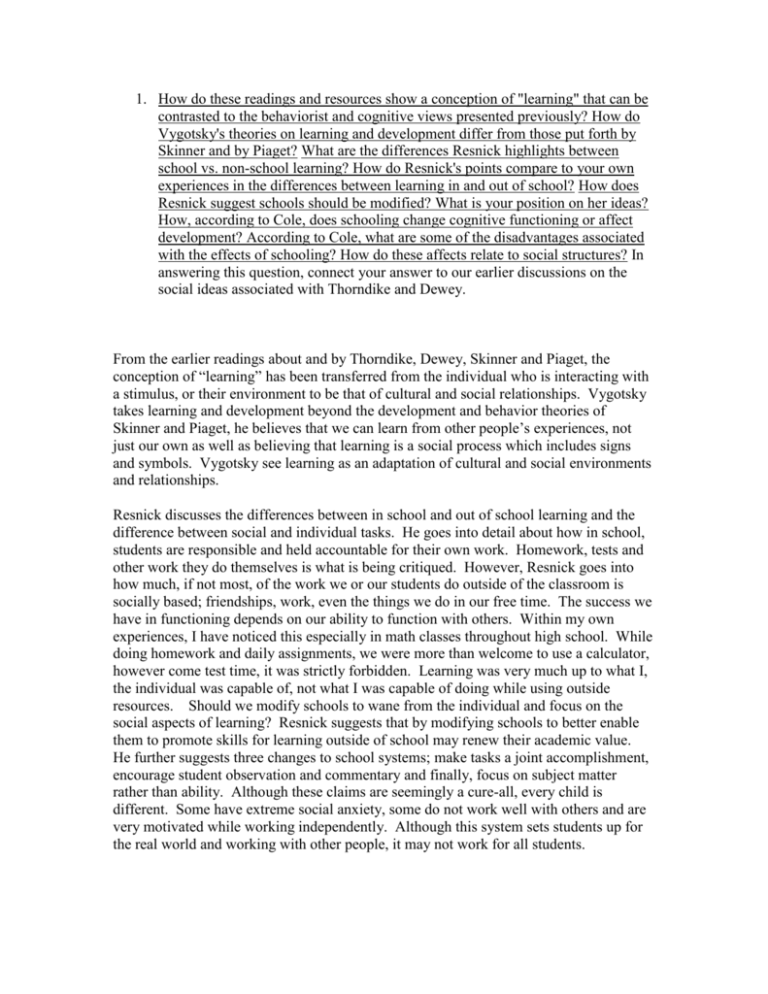
1. How do these readings and resources show a conception of "learning" that can be contrasted to the behaviorist and cognitive views presented previously? How do Vygotsky's theories on learning and development differ from those put forth by Skinner and by Piaget? What are the differences Resnick highlights between school vs. non-school learning? How do Resnick's points compare to your own experiences in the differences between learning in and out of school? How does Resnick suggest schools should be modified? What is your position on her ideas? How, according to Cole, does schooling change cognitive functioning or affect development? According to Cole, what are some of the disadvantages associated with the effects of schooling? How do these affects relate to social structures? In answering this question, connect your answer to our earlier discussions on the social ideas associated with Thorndike and Dewey. From the earlier readings about and by Thorndike, Dewey, Skinner and Piaget, the conception of “learning” has been transferred from the individual who is interacting with a stimulus, or their environment to be that of cultural and social relationships. Vygotsky takes learning and development beyond the development and behavior theories of Skinner and Piaget, he believes that we can learn from other people’s experiences, not just our own as well as believing that learning is a social process which includes signs and symbols. Vygotsky see learning as an adaptation of cultural and social environments and relationships. Resnick discusses the differences between in school and out of school learning and the difference between social and individual tasks. He goes into detail about how in school, students are responsible and held accountable for their own work. Homework, tests and other work they do themselves is what is being critiqued. However, Resnick goes into how much, if not most, of the work we or our students do outside of the classroom is socially based; friendships, work, even the things we do in our free time. The success we have in functioning depends on our ability to function with others. Within my own experiences, I have noticed this especially in math classes throughout high school. While doing homework and daily assignments, we were more than welcome to use a calculator, however come test time, it was strictly forbidden. Learning was very much up to what I, the individual was capable of, not what I was capable of doing while using outside resources. Should we modify schools to wane from the individual and focus on the social aspects of learning? Resnick suggests that by modifying schools to better enable them to promote skills for learning outside of school may renew their academic value. He further suggests three changes to school systems; make tasks a joint accomplishment, encourage student observation and commentary and finally, focus on subject matter rather than ability. Although these claims are seemingly a cure-all, every child is different. Some have extreme social anxiety, some do not work well with others and are very motivated while working independently. Although this system sets students up for the real world and working with other people, it may not work for all students. Cole focuses on the sociological aspects of schooling, how it is not socially or culturally neutral and creates divisions within social groups. Cole sees schools as avenues for students to become divided from one area to another, divided in content (due to differences in resources), cultural exposure (geographically etc. He suggests that we assume learning and the environment in which we learn is a community and we are a one social sphere of learners working toward a common goal. 2. How does the situated cognition described by Lave differ from Vygotsky's theories - think here about the emphasis of context in the former and of social relationships in the latter. According to Lave, who puts forth a theory of situationspecific cognitive activity, how is problem-solving activity different in and out of school? How do Lave's ideas on this difference compare with Resnick's? What does Lave mean by the "ideology of arithmetic?" How does this ideology relate to Cole's ideas on the relationship of school to society and to place of abstract knowledge in schooling? What do Lave, Cole, and Resnick have in common on discussions of abstraction and context in learning? Lave describes how learners separate the in school learning and the out of school processes. The example he gives is a professional bowling scorer who cannot solve bowling scoring questions in class. Lave suggests that we are capable of much more than we are ever taught and that we might (in the case of math) qualitatively have different organization for the arithmetic though processes. Vygotsky would support this theory in that is shows how in school – out of school learning is divided. In the classroom, we are under pressure to perform high, and we are singled out. In social situations, be they scoring bowling or buying groceries, we are thinking objectively, towards a goal rather than just to “answer the question”. Lave and Resnick both see eye to eye on that the content learned in school, it not what we apply to our social and real situation out of school. In out of school situations, as described by Lave, we see part of the solution in front of us, and just need to make the connections. In school, we have to reach the end as well as make the connections, which is much more intimidating and complex. The Ideology of Arithmetic, as described by Lave, is producing for students a normative model for abstract ideas. The instruction is context-free and is done so in order to socialize students within the subject. As seen in Cole’s ideas, we have separated the thought process from school and those outside of school. We take abstract ideas in the classroom and make them “normal” so students can process them despite their background, while we face abstract ideas outside of school every day that we are forced to encounter. As seen in all three articles, each theorist sees learning as something that needs to be social, for us to grasp the information. Schools are providing an education that is disassociating the content from real life applications. From math at the grocery store to historical trends in today’s current events, the format of in school learning is not applicable to out of school learning.
